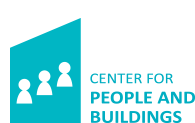SAFMA conference Midrand - New tools for risk management in early stages of PPP workplace projects
October 2005 | Wim Pullen
PPP projects are everywhere. Many government organizations use this type of partnership to develop government and public buildings, road, bridges or other infrastructural works. One of the objectives is to contract those works or services for a long period, up to 30 years. This implies that organizational changes in society will affect the functional requirements of the artifact. Uncertainty and lack of information are entering the development process and need to be addressed. This article focuses on two instruments that were developed in the Netherlands to deal with uncertainty and risk in the early stages of the development of workplace projects.
PKM method
The PKM method (Product Knowledge Model) helps to understand, map and decide about the consequences of different assumptions on functions, the characteristics and interrelationships that usually appear in the brief or program of requirements. PKM helps to structure the discu ssion within the end user organization between general managers and those responsible for the workplace project.
PARAP model
The other instrument is the PARAP model which is an advanced cost calculation model supporting decision making in the early stages. PARAP calculates the consequences of different choices in the initial, definition and early design phase. PARAO is a practical tool that structures the discussion between parties that are involved in PPP projects.
